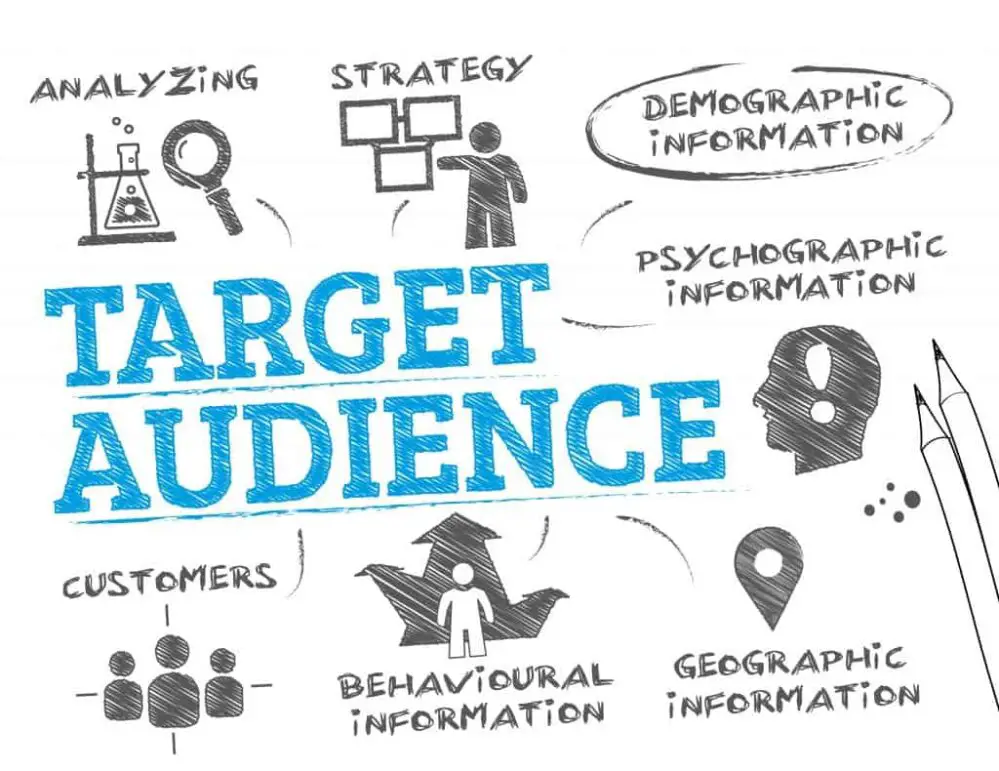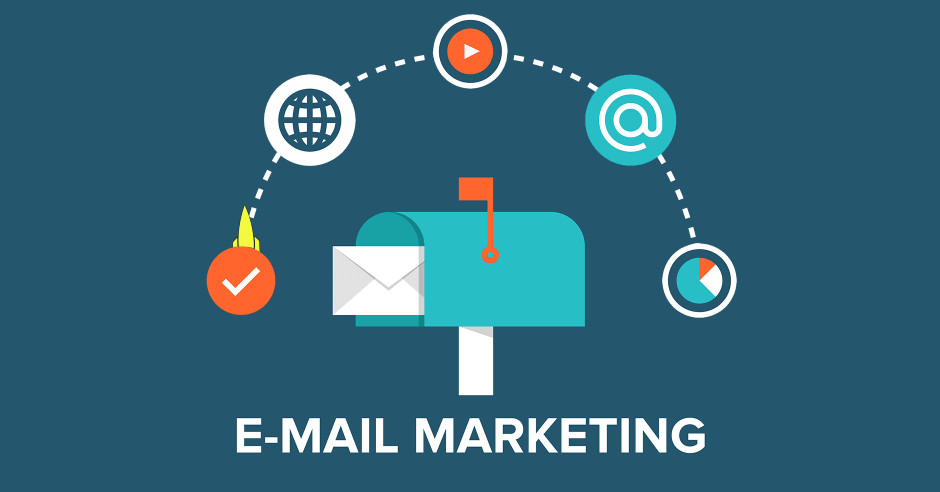How to Succeed with Content Marketing

Content marketing has become an essential part of modern business strategy. In a world where consumers are bombarded with advertisements from every direction, creating valuable, relevant, and consistent content is the key to attracting and retaining a clearly defined audience. By delivering content that resonates with your target audience, you can establish yourself as a thought leader, build trust, and ultimately drive profitable customer action.
Understanding Content Marketing
Before we dive into the strategies for success, let's define what content marketing really is. Content marketing is a strategic approach that focuses on creating and distributing valuable, relevant, and consistent content to attract and retain a clearly defined audience – and, ultimately, to drive profitable customer action.
Unlike traditional advertising, which often disrupts the user experience with in-your-face sales pitches, content marketing aims to provide useful information that addresses the specific needs and interests of your target audience. By establishing yourself as a reliable source of valuable content, you can build trust, credibility, and a loyal following that will be more receptive to your products or services.
Identifying Your Audience

The foundation of any successful content marketing strategy is a deep understanding of your target audience. After all, how can you create content that resonates if you don't know who you're speaking to?
One effective way to gain insight into your audience is by creating buyer personas – semi-fictional representations of your ideal customers based on market research and data from your existing customer base. These personas should include demographic information, behavioral patterns, motivations, and pain points. With a clear picture of your audience in mind, you can tailor your content to address their specific needs and interests.
Conducting market research is also crucial. Analyze your competitors, industry trends, and customer feedback to identify gaps in the market that your content can fill. This will not only help you create more relevant and valuable content but also position your brand as a thought leader in your industry.
Setting Clear Goals and Objectives
Before you dive into content creation, it's essential to establish clear goals and objectives for your content marketing efforts. Without a well-defined strategy, it's easy to get sidetracked and create content that lacks focus and direction.
Start by defining your success metrics. Will you measure success by increased website traffic, lead generation, or perhaps even direct sales? Once you've identified your key performance indicators (KPIs), establish SMART (Specific, Measurable, Achievable, Relevant, and Time-bound) goals that align with your overall business objectives.
By setting clear goals and objectives, you can ensure that your content marketing efforts are focused and purposeful, ultimately leading to better results and a higher return on investment (ROI).
Crafting Compelling Content

Now that you've laid the groundwork, it's time to create content that truly captivates your audience. The types of content you produce will depend on your industry, audience preferences, and the specific goals you're trying to achieve.
Blog posts, for example, are an excellent way to establish thought leadership, share industry insights, and drive organic traffic to your website. Videos, on the other hand, can be an engaging medium for product demonstrations, tutorials, or behind-the-scenes glimpses into your brand.
Infographics are another powerful tool for distilling complex information into easily digestible visuals, while podcasts offer a convenient and intimate way for your audience to consume content on the go.
No matter what types of content you choose to create, it's essential to develop a content calendar that ensures consistency in your publishing schedule. Consistent, high-quality content not only keeps your audience engaged but also signals to search engines that your website is active and relevant.
Optimizing for Search Engines (SEO)
While creating compelling content is crucial, it's equally important to ensure that your content is easily discoverable by your target audience. This is where search engine optimization (SEO) comes into play.
Start by conducting thorough keyword research to identify the terms and phrases your audience is using to search for information related to your industry or products. Once you've identified these keywords, you can incorporate them strategically throughout your content, including in your titles, headings, image alt text, and body copy.
On-page optimization techniques, such as optimizing your URLs, meta descriptions, and internal linking structure, can also help search engines better understand the context and relevance of your content.
Additionally, off-page optimization strategies, like building high-quality backlinks from reputable sources and maintaining an active social media presence, can further boost your search engine rankings and drive more organic traffic to your website.
Engaging with Your Audience
Content marketing is not a one-way street. To truly succeed, you need to foster a dialogue with your audience and encourage engagement.
Encourage user interaction by posing questions, inviting comments, and soliciting feedback on your content. Respond to comments and messages promptly, and consider hosting Q&A sessions or webinars to provide a more interactive experience.
Building a strong social media presence is also essential for engaging with your audience. Share your content across various social channels, join relevant conversations, and interact with your followers to build a sense of community around your brand.
Building Authority and Credibility
In the crowded online landscape, it's not enough to simply create content – you need to establish your brand as a credible and authoritative voice in your industry.
Publishing high-quality, well-researched, and insightful content is the foundation of building authority and credibility. Consider collaborating with industry experts or influencers through guest blogging opportunities or co-hosted webinars to tap into their existing audiences and lend additional credibility to your brand.
Obtaining testimonials and positive reviews from satisfied customers can also go a long way in enhancing your brand's reputation and trustworthiness.
Leveraging Email Marketing

While social media and organic search are important channels for content distribution, email marketing remains a powerful tool for directly reaching and engaging your audience.
Build an email list by offering valuable lead magnets, such as whitepapers, e-books, or exclusive content, in exchange for email addresses. Once you've built a substantial list, create compelling email content that provides value to your subscribers while also promoting your latest blog posts, videos, or other content offerings.
Implementing automation and segmentation can further enhance the effectiveness of your email marketing efforts, ensuring that the right content reaches the right audience at the right time.
Analyzing and Measuring Performance
Content marketing is not a set-it-and-forget-it endeavor. To truly succeed, you need to continuously analyze and measure the performance of your efforts, using data-driven insights to optimize and refine your strategies.
Track key metrics like website traffic, engagement rates, lead generation, and conversion rates using analytics tools like Google Analytics. Regularly review this data to identify what's working and what's not, and make informed decisions about how to allocate your resources and adjust your approach accordingly.
Iterating and Improving
Even the most well-planned content marketing strategies may need tweaking as you go along. Embrace a mindset of continuous improvement by conducting A/B testing, gathering feedback from your audience, and analyzing performance data to identify areas for optimization.
Don't be afraid to experiment with new content formats, distribution channels, or messaging approaches. The key is to remain agile and responsive, adapting your strategies to align with the ever-evolving preferences and behaviors of your target audience.
Staying Updated with Industry Trends
The world of content marketing is constantly evolving, with new technologies, platforms, and best practices emerging all the time. To stay ahead of the curve, it's essential to actively engage with industry leaders and experts.
Follow influential bloggers, attend conferences and workshops, and subscribe to industry publications to stay informed about the latest trends, strategies, and tools. By continuously expanding your knowledge and understanding of the content marketing landscape, you can ensure that your efforts remain relevant and effective.
Overcoming Common Challenges
While content marketing can be an incredibly powerful tool for building brand awareness, generating leads, and driving revenue, it's not without its challenges. Two common hurdles that content marketers face are content burnout and a lack of resources.
Content burnout can occur when you're consistently producing large volumes of content without taking the time to replenish your creative well. To combat this, prioritize quality over quantity, and allow yourself time to recharge and seek out new sources of inspiration.
A lack of resources, whether it's limited time, budget constraints, or a shortage of skilled personnel, can also hinder your content marketing efforts. In these cases, consider outsourcing content creation to freelancers or agencies, or explore more cost-effective content formats, such as user-generated content or repurposing existing material.
Additionally, be prepared to adapt your strategies as search engine algorithms evolve. Algorithm changes can have a significant impact on the visibility and performance of your content, so stay informed and be willing to adjust your approach as needed.
Scaling Your Content Marketing Efforts

As your content marketing efforts gain traction and your audience grows, you may find yourself in need of scaling your operations to keep up with demand.
One option is to outsource content creation to freelance writers, designers, or videographers, allowing you to tap into a broader pool of talent and expertise while freeing up your internal resources for strategic planning and management.
Another approach is to build a dedicated content marketing team within your organization. This can provide greater control and consistency over your content efforts, but it also requires a significant investment in hiring and training the right personnel.
Regardless of the path you choose, it's crucial to implement scalable processes and systems that can support your growing content marketing operations. This may include adopting project management tools, establishing content workflows, and investing in automation technologies to streamline your content creation and distribution processes.
Case Studies and Success Stories
While the principles and strategies outlined in this guide provide a solid foundation for content marketing success, sometimes it's helpful to see real-world examples in action. Let's take a look at a few case studies and success stories that illustrate the power of effective content marketing.
Blendtec's “Will It Blend?” Campaign
Blendtec, a manufacturer of high-end blenders, launched the “Will It Blend?” video series in 2006 to showcase the power and durability of their products. In each video, the host attempts to blend various inedible objects, such as golf balls, marbles, and even an iPhone.
While the premise may seem simple, the campaign was incredibly successful, generating millions of views and transforming Blendtec from a relatively unknown brand to a household name. The videos not only entertained viewers but also effectively demonstrated the strength and capabilities of Blendtec's blenders, driving sales and brand awareness.
HubSpot's Inbound Marketing Content Strategy
HubSpot, a leading provider of marketing, sales, and customer service software, has built its entire business model around the concept of inbound marketing – attracting customers through valuable content rather than disruptive outbound tactics.
At the core of HubSpot's content strategy is a vast library of educational resources, including blog posts, e-books, webinars, and online courses. By providing free, high-quality content that addresses the needs and pain points of their target audience, HubSpot has established itself as a trusted authority in the field of inbound marketing.
This content-driven approach has not only fueled HubSpot's rapid growth and success but has also inspired countless other businesses to adopt inbound marketing strategies of their own.
Key Takeaways
From these success stories, we can glean a few key takeaways that underscore the power of effective content marketing:
- Creativity and entertainment value matter. While educational content is important, don't be afraid to think outside the box and create content that is genuinely engaging and entertaining for your audience.
- Consistency is key. Both Blendtec and HubSpot have sustained their content marketing efforts over the long term, consistently delivering high-quality content that keeps their audiences engaged and coming back for more.
- Align content with your business objectives. Ultimately, your content should serve a purpose that aligns with your overall business goals, whether that's generating leads, building brand awareness, or driving sales.
By incorporating these lessons into your own content marketing efforts, you can increase the likelihood of achieving similar levels of success and growth for your business.

Conclusion
Succeeding with content marketing requires a strategic, audience-centric approach that combines creativity, consistency, and a deep understanding of your target market. By creating valuable, relevant, and engaging content, you can establish your brand as a trusted authority, build lasting relationships with your audience, and ultimately drive profitable customer action.
Remember, content marketing is an ongoing journey, not a destination. Stay committed to continuously refining and improving your strategies, embracing new technologies and trends, and adapting to the ever-changing needs and preferences of your audience.
With dedication, perseverance, and a willingness to learn and evolve, you can unlock the full potential of content marketing and position your business for long-term success in the digital age.
Resources and Tools for Content Marketers
To support your content marketing efforts, here are some recommended resources and tools:
Courses, Books, and Training Programs
- “Epic Content Marketing” by Joe Pulizzi
- “Content Marketing Certification” by HubSpot Academy
- “Content Marketing Mastery” by Digital Marketer
- “Content Marketing Unlocked” by Copyblogger
Essential Tools and Software
- Google Analytics
- SEMrush
- Ahrefs
- Buzzsumo
- Grammarly
- Canva
- Hootsuite
- Mailchimp
By leveraging these resources and continuously expanding your knowledge, you can stay ahead of the curve and position yourself for ongoing success in the dynamic world of content marketing.
